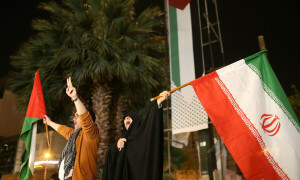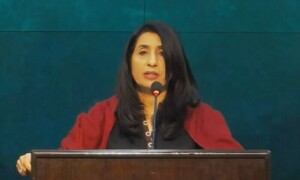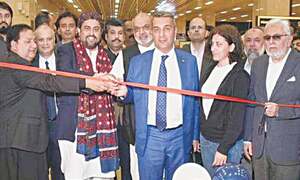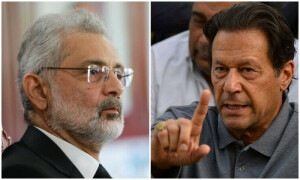PRIME MINISTER Imran Khan will soon be heading to Washington. Media punditry is already in overdrive, debating what demands he should put to President Donald Trump. Will Pakistan be able to get a concession on FATF? Will the US agree to tell the IMF to take it easy? What more will Trump want on Afghanistan? No surprises for this is how such visits have been approached in the past. But it’s time to think anew with a new prime minister.
Read: PM Imran Khan to meet US President Donald Trump on July 22
This isn’t a typical head-of-state visit. Usually, such trips mark the culmination of prolonged behind-the-scenes preparation by working-level bureaucracies. Leaders meet with tangible deliverables to offer, most often multiple MOUs/agreements and/or strategic roadmaps for their relationship.
Some of it will be seen in the upcoming trip. But this visit isn’t about that. For starters, I’d be surprised if all this came about due to any bureaucratic push from within the US ‘system’, which has been reluctant to create any such opportunity; top-level engagement was seen as a major concession, only fit for a time when Pakistan delivered big on US asks. And while there has been periodic US acknowledgement of Pakistan’s efforts in Afghanistan, Washington’s overall mindset on Pakistan remains decidedly negative.
The visit is most likely a result of a decision by the US leadership. Trump has repeatedly shown his propensity to engage counterparts on his own initiative. Engagement for him seems to be about exploring possibilities of striking favourable deals. Failing to do so is as okay as succeeding. Such an approach is anathema for foreign policy bureaucracies. The global norm of statecraft is to play safe: be boring, go slow, do not spring surprises, and stick to talking points.
Let the two leaders be themselves.
No matter which side of the US-Pakistan relationship you are on, you cannot but agree that playing by the rules hasn’t worked. And it won’t — because divergences in interests on key issues are real and their respective positions on them are too dug in.
Going by ‘the script’, Trump will echo Washington’s negative energy: blame Pakistan for the mess in Afghanistan, talk of sanctuaries, terrorism, the danger of nuclear weapons, and promise to keep the pressure up till Pakistan delivers. Khan will fire away by accusing the US of using Pakistan as a scapegoat, of destabilising South Asia and being in cahoots with India, and ask for support on FATF, IMF, Kashmir, etc.
Read: Pakistan’s relations with the US are important but their scope is limited
I have seen this move play out multiple times. Former prime minister Nawaz Sharif visited Washington twice, in 2013 and 2015, reading from the script and receiving equally scripted responses. Hardly surprising, the visits made no dent in the negativity in ties.
The US-Pakistan engagement has long needed a shakeup. Khan and Trump, both of whom pride themselves for going after the seemingly impossible, are the right people to provide it.
For this to work though, bureaucracies on both sides will need to take a deep breath and back off. Let the two leaders be themselves for a bit. Rather than burdening them with lists of the well-known demands of both sides, the respective systems should enable them to move away from guarded positions in the short time they’ll have together. Let both rely on candour and put the deepest issues on the table. Let Trump tell Khan that the Pakistan-China relationship is a problem for him. Let Khan tell Trump that Pakistan thinks the US is wilfully allowing India to get away with efforts to destabilise Pakistan, etc. Then, crucially, let them talk about innovative solutions and win-win transactions.
So what of Afghanistan, FATF, IMF, and other things being planned on the economic side? After all, this is what both systems actually want to make headway on. Of course, these issues will be talked about and promises made — perhaps a couple of agreements concluded. But if that is all the big meeting is going to be about, it’ll be a wasted opportunity.
Instead of trying to get to solid outcomes on all this during the visit itself, a better approach would be to set up working-level groups to unpack these issues in greater detail after the visit. But even this effort will only produce something worthwhile if the two leaders signal their intent to mend fences — and to solve things in atypical ways if needed. This won’t happen if they don’t get a chance to sync up as individuals.
The most important aspect to recognise for now is that these two gents work best when they connect personally with their audience. Allowing them to develop a personal chemistry during the trip will be as important as getting them to talk substance.
Colleagues in the policy business have asked what the appropriate benchmarks to judge Khan’s visit might be. My answer: if the two leaders have each other on speed dial after the trip and get comfortable connecting directly when the bureaucracies hit snags, you’ll know the trip was worth it.
The writer is the author of Brokering Peace in Nuclear Environments: US Crisis Management in South Asia.
Published in Dawn, July 9th, 2019
















































